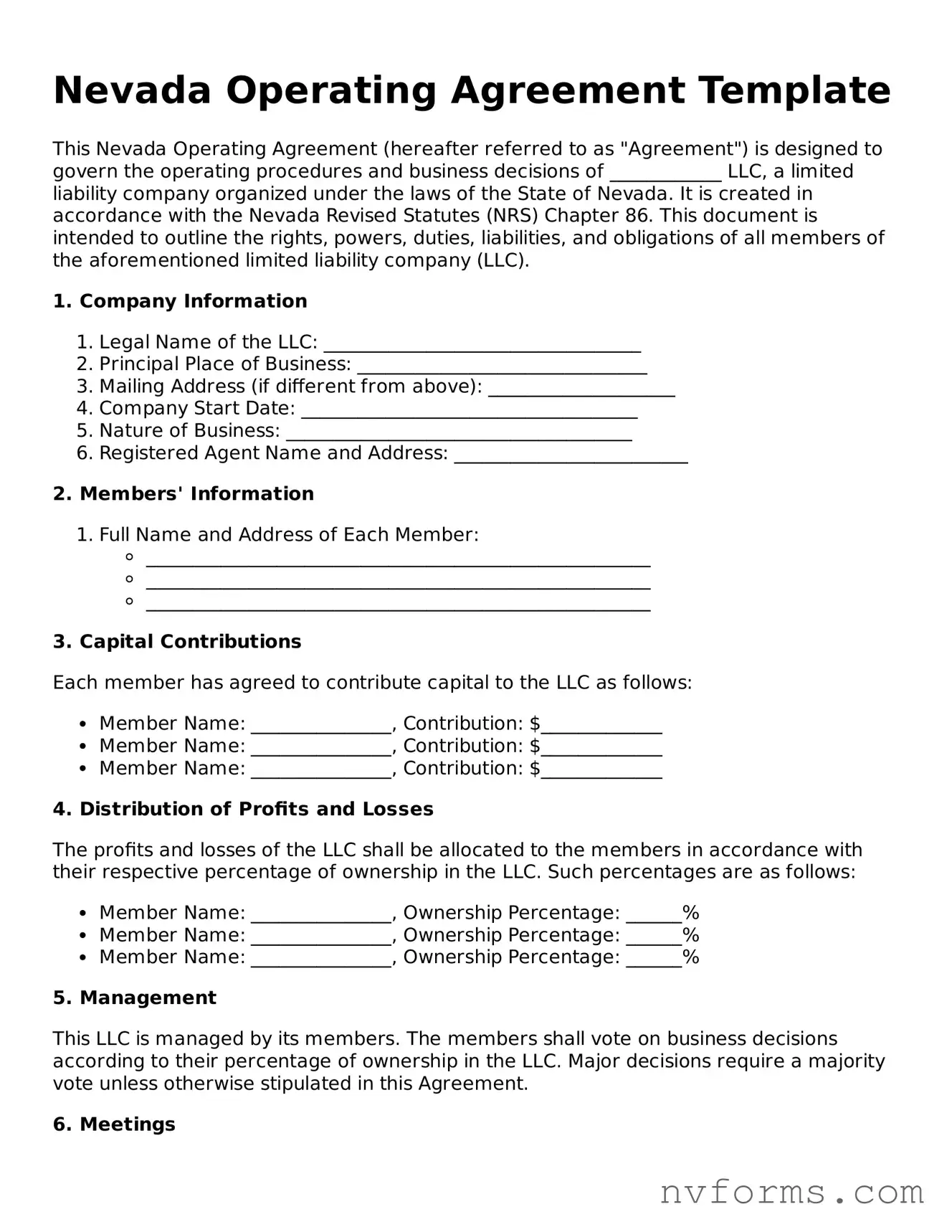Nevada Operating Agreement Template
This Nevada Operating Agreement (hereafter referred to as "Agreement") is designed to govern the operating procedures and business decisions of ____________ LLC, a limited liability company organized under the laws of the State of Nevada. It is created in accordance with the Nevada Revised Statutes (NRS) Chapter 86. This document is intended to outline the rights, powers, duties, liabilities, and obligations of all members of the aforementioned limited liability company (LLC).
1. Company Information
- Legal Name of the LLC: __________________________________
- Principal Place of Business: _______________________________
- Mailing Address (if different from above): ____________________
- Company Start Date: ____________________________________
- Nature of Business: _____________________________________
- Registered Agent Name and Address: _________________________
2. Members' Information
- Full Name and Address of Each Member:
- ______________________________________________________
- ______________________________________________________
- ______________________________________________________
3. Capital Contributions
Each member has agreed to contribute capital to the LLC as follows:
- Member Name: _______________, Contribution: $_____________
- Member Name: _______________, Contribution: $_____________
- Member Name: _______________, Contribution: $_____________
4. Distribution of Profits and Losses
The profits and losses of the LLC shall be allocated to the members in accordance with their respective percentage of ownership in the LLC. Such percentages are as follows:
- Member Name: _______________, Ownership Percentage: ______%
- Member Name: _______________, Ownership Percentage: ______%
- Member Name: _______________, Ownership Percentage: ______%
5. Management
This LLC is managed by its members. The members shall vote on business decisions according to their percentage of ownership in the LLC. Major decisions require a majority vote unless otherwise stipulated in this Agreement.
6. Meetings
Annual meetings of the members shall be held at the principal place of business or at any other place the members agree upon, on ____________ (date), or at a time deemed appropriate by the members. Special meetings may be called as necessary with reasonable notice given to all members.
7. Amendments
Any amendments to this Agreement shall be made in writing and must be agreed upon by a majority vote of the members, unless a greater percentage is required by this Agreement or applicable Nevada law.
8. Dissolution
If the members decide to dissolve the LLC, dissolution shall proceed in accordance with applicable Nevada law, including the payment of all debts and the distribution of remaining assets to the members in proportion to their ownership percentages.
9. Governing Law
This Agreement shall be governed by, and construed in accordance with, the laws of the State of Nevada.
10. Signatures
In witness whereof, the undersigned have executed this Operating Agreement as of the date last written below:
- Member Signature: __________________ Date: _______________
- Member Signature: __________________ Date: _______________
- Member Signature: __________________ Date: _______________

